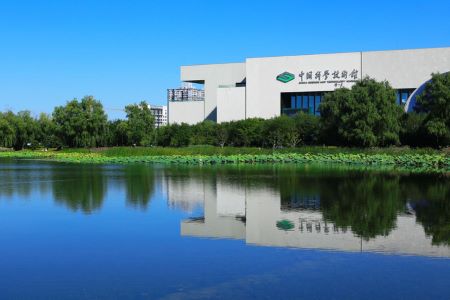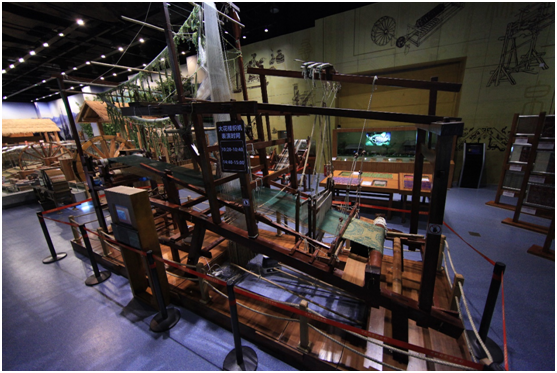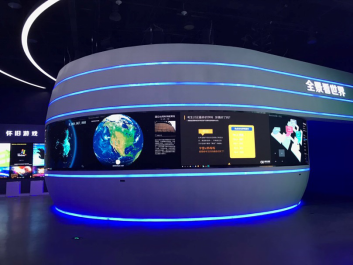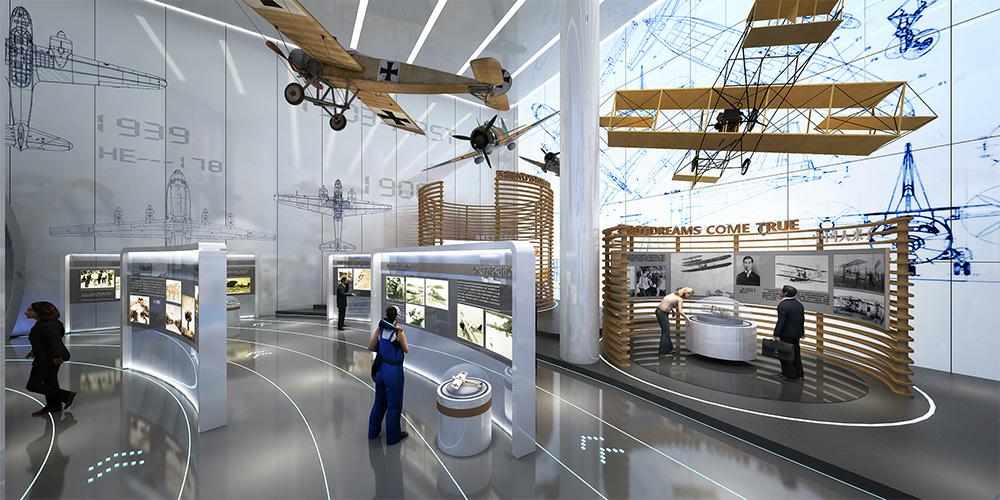Chinese Name: 中国科学技术馆 Pronunciation: Zhōngguó Kēxué Jìshù Guǎn
Building Time: 1984
Suggested Visiting Time: About 3 Hours
Building Area: About 102,000 square meters
Address: No. 5, Beichen East Road, Chaoyang District, Beijing, China
Building Function: Scientific education. The museum presents scientific principles and technical applications and encourages visitors to explore and practice by themselves.
| Exhibition Halls | Ticket Price | |
| Main Exhibition Halls | Adults | 30 yuan |
| Students | 20 yuan | |
| Science Paradise Hall | 30 yuan | |
| Special-effect Theaters | Adults | 30 yuan |
| Students | 20 yuan | |
| Opening Hours | Tuesday to Sunday | 9:30 - 17:00 |
| Ticket Office Opening Hours | Tuesday to Sunday | 9:00 - 16:00 |
| Closing Days | Monday (except national holidays), Chinese New Year’s Eve, and the first two days of the Chinese New Year. | |

Located at No. 5, Beichen East Road, Chaoyang District, China Science & Technology Museum is surrounded by the residential area of the Asian Games in the east, the Olympic waters in the west, the Olympic Stadium in the south, and the Forest Park in the north. The museum covers an area of 48,000 square meters and its building area is about 102,000 square meters. It is the only comprehensive museum of science and technology in China.
China Science & Technology Museum has five major exhibitions, including The Glory of China, Explorations and Discoveries, Science Paradise, Science & Technology and Life, and Challenges and the Future, the public displaying area, as well as four special-effect theaters, respectively the Dome Theater, Giant Screen Theater, 4D Theater and Motion Theater. The museum also has a lecture hall for popular science, a multi-function hall, and some laboratories and classrooms.
China Science & Technology Museum was originally named Central Science Museum. Its preparation started in the year 1958. However, the project was then canceled to save capital and materials for the construction of the Great Hall of the People. On November 21, 1984, the ground was broken on the first-stage project of the museum.
The first-stage project covered an area of 20,000 square meters, consisting of the Comprehensive Business Building, the First-Stage Exhibition Hall, and the Dome Theater. The former two were completed in August 1988 and officially opened to the public on September 22, 1988. The latter one was finished in May 1994 and opened to the public in August 1995.
On February 24, 1998, the second phase of the new exhibition hall started. The new exhibition hall was completed as planned on September 17, 1999 and officially opened to the public on April 29, 2000.
As known as the third phase of China Science & Technology Museum, the construction of the new China Science & Technology Museum held the foundation laying ceremony on May 9, 2006. On September 16, 2009, its construction was finished and opened to the public officially.

The Glory of China shows the glorious scientific and technological achievements of ancient China and its important role in the progress of the Chinese nation and the world’s civilization. The exhibition hall consists of Scientific Exploration in Ancient China, Communication of Chinese Science, Technological Innovation in Ancient China, Technology with Global Civilization, and Experience Area.
Challenges and the Future on the fourth floor of the main hall includes Hall A and B. Hall A is divided into three areas, including Narration of the Earth, World of Energy, and New Material. Hall B is divided into four areas, covering the topics of Genetic Life, Exploration of Space, Exploitation of the Ocean, and Striding towards Future.

Explorations and Discoveries Hall, located on the second floor of the main hall, includes Hall A and Hall B. It mainly shows the explorations and discoveries of basic sciences in modern times, as well as scientific ideology in exploring sciences. Hall A is divided into five areas covering the topics of Marvel of Material, Mystery of Electromagnetism, Law of Movement, Beauty of Light and Shadow, and Fascination of Space. Hall B is composed of Charm of Mathematics, Rhythm of Sound, and Secret of Life.

Science & Technology and Life Hall, which is located on the third floor of the main hall, consists of Hall A, B, C, and D. Hall A is divided into three areas, including Origin of Clothing and Food, Road of Health and Journey of Meteorology. Hall B introduces technologies in daily life to visitors. Hall C mainly demonstrates the developing progress of information technology and the changes and influence that information technology brings on people’s life. Hall D is divided into two areas, including Convenience of Transportation and Ingenuity of Machinery.
The Dome Theater is equipped with the world’s advanced true 8K Digital laser planetarium system as well as IMAX print projection equipment. The theater can accommodate 438 spectators. It is one of the biggest true 8K laser dome theaters around the world nowadays.

The Giant Screen Theater is one of the biggest theaters on earth. Its screen is 22 meters high and 30 meters wide. The theater can accommodate 632 spectators and has priority seats for the disabled.
The 4D Theater adopts 4D special effects based on 3D movies, together with various environmental effects. It can hold 198 spectators. It combines the senses of hearing, sight, smell, touch, and dynamism perfectly.
The Motion Theater introduces the most advanced motion equipment. It uses double screening machines and a 5.1 channel stereo surround sound system. It can accommodate 60 spectators.
1. Special-effect theaters are not suitable for patients with heart disease, hypertension, and infants; children under 1.2 meters, seniors above 70 years old, and pregnant women cannot watch the shows at the Motion Theater; pregnant women cannot watch the shows at the 4D Theater.
2. Children’s Science Paradise is suitable for children of 3 to 10 years old.
West Gate: Take bus 328, 379, 419, 484, 617, 628, 751, 913, or Yuntong 110, get off at Walinankou Station, and walk north for 590 meters.
East Gate: Take bus 328, 379, 419, 425, 484, 518, 628, 630, 695, 617, 751, 913, 949 or Yuntong 110, get off at Baofang Station, and walk west for 440 meters and then walk north for 280 meters.
Take Metro Line 8 or Line 15, get off at Olympic Park Station (Exit G), and walk east for 410 meters and then walk northeast for 420 meters.
Take Metro Line 8, get off at South Gate of Forest Park Station (Exit C) and walk south for 320 meters and walk east for 380 meters and then walk southwest for 100 meters.
Chinese: 请带我去中国科学技术馆。English: Please take me to China Science & Technology Museum.
If you go to China Science & Technology Museum from the center of Beijing (Grand Hyatt Beijing), it takes about 40 minutes (about 40 yuan).
If you go to China Science & Technology Museum from Beijing Capital International Airport, it takes about 35 minutes (about 80 yuan).
If you go to China Science & Technology Museum from Beijing Daxing International Airport, it takes about 70 minutes (about 230 yuan).
If you go to China Science & Technology Museum from Beijing West Railway Station, it takes about 35 minutes (about 60 yuan).
